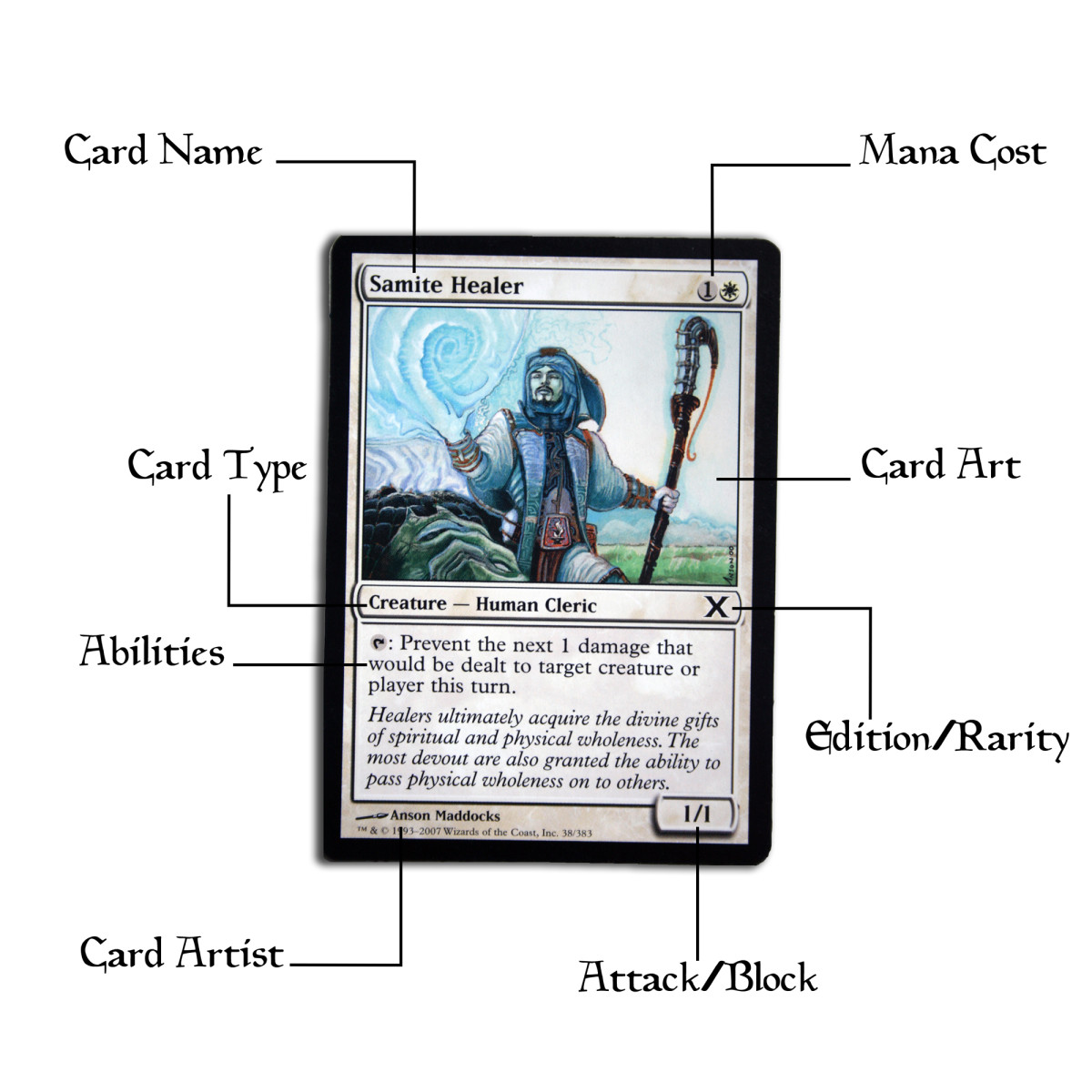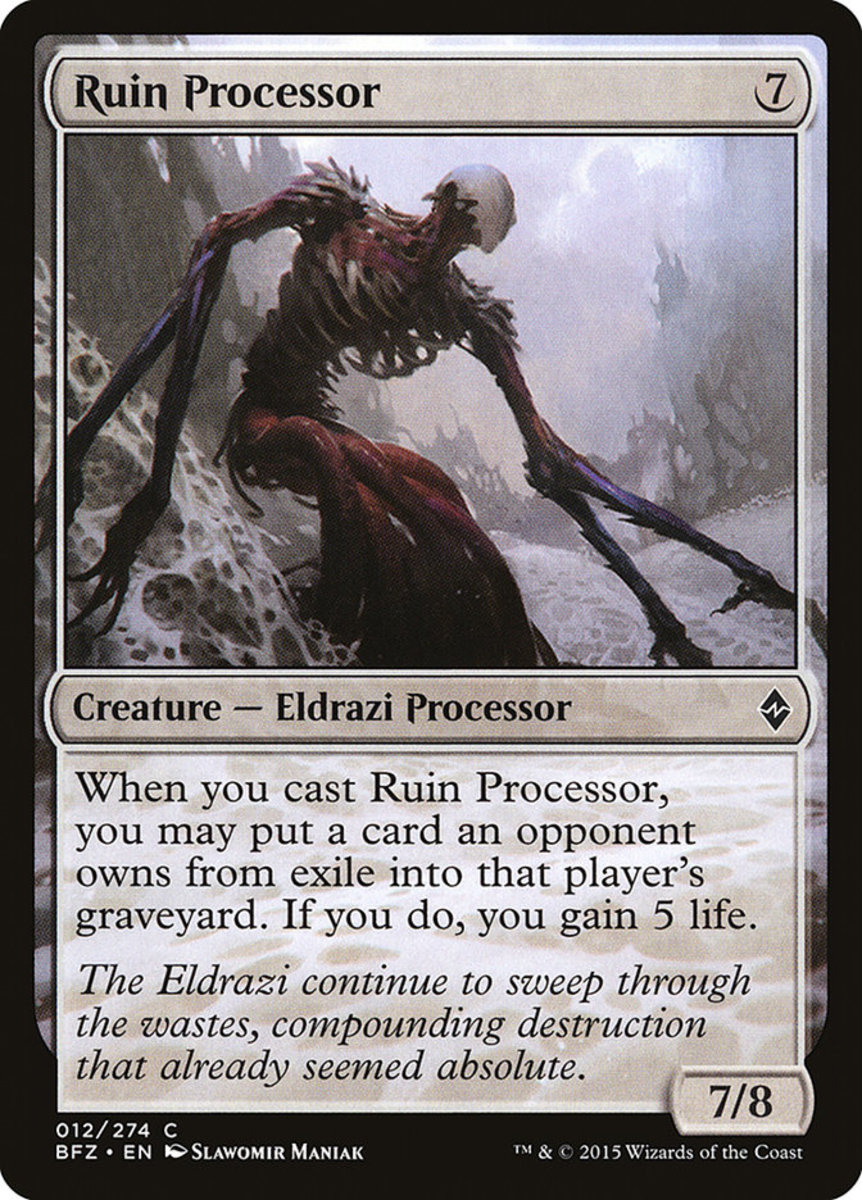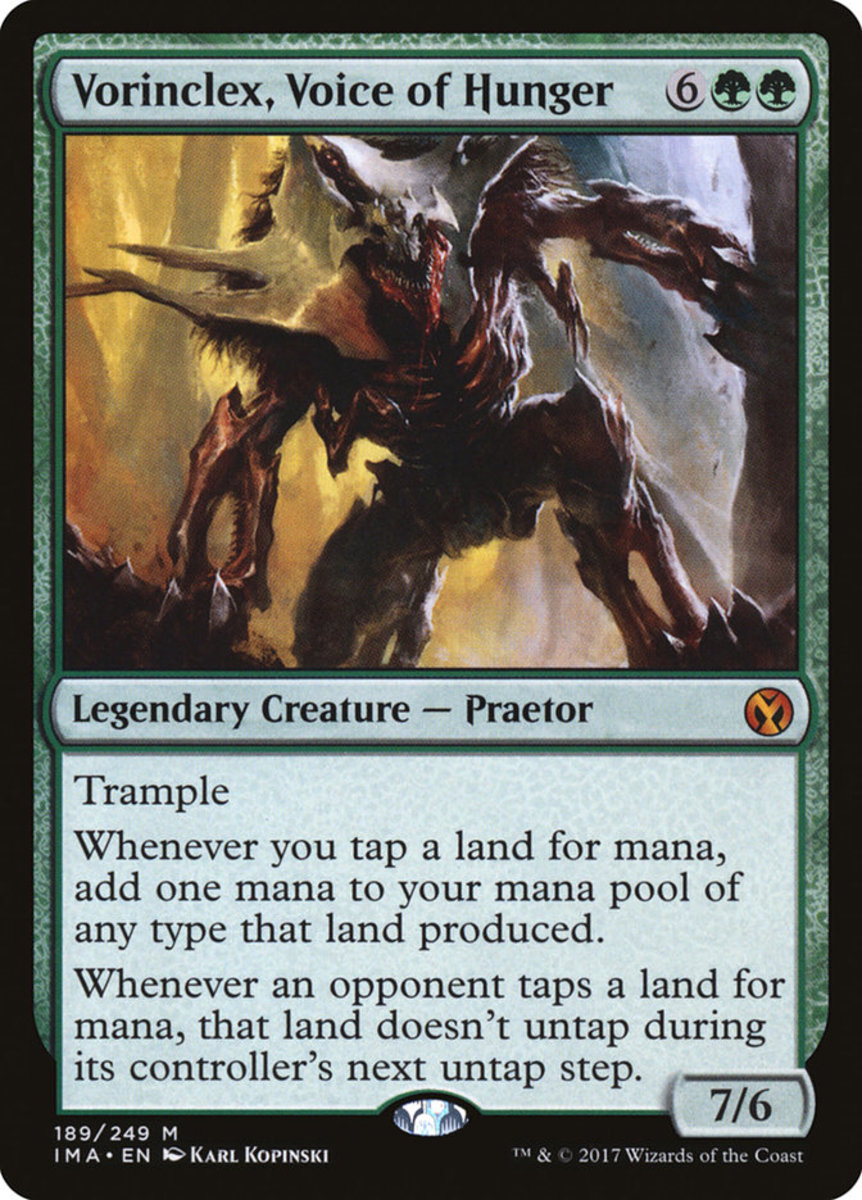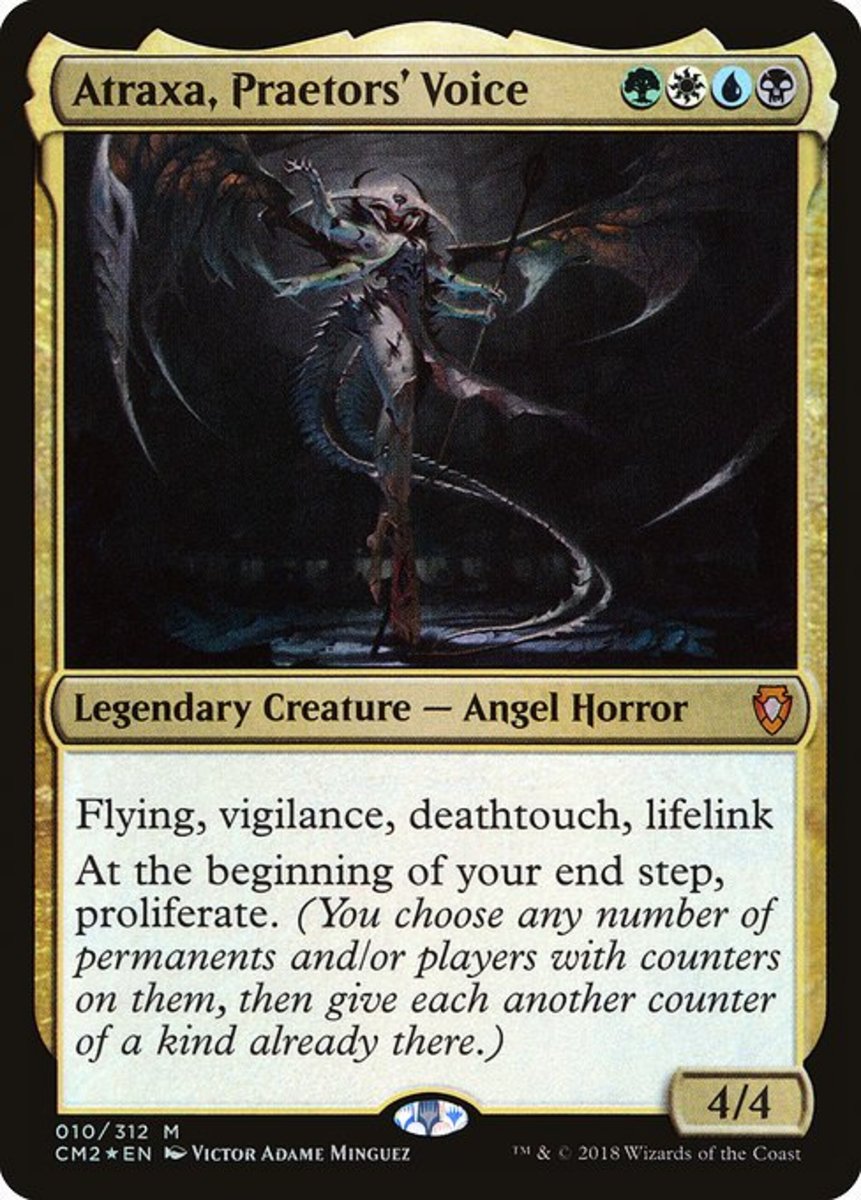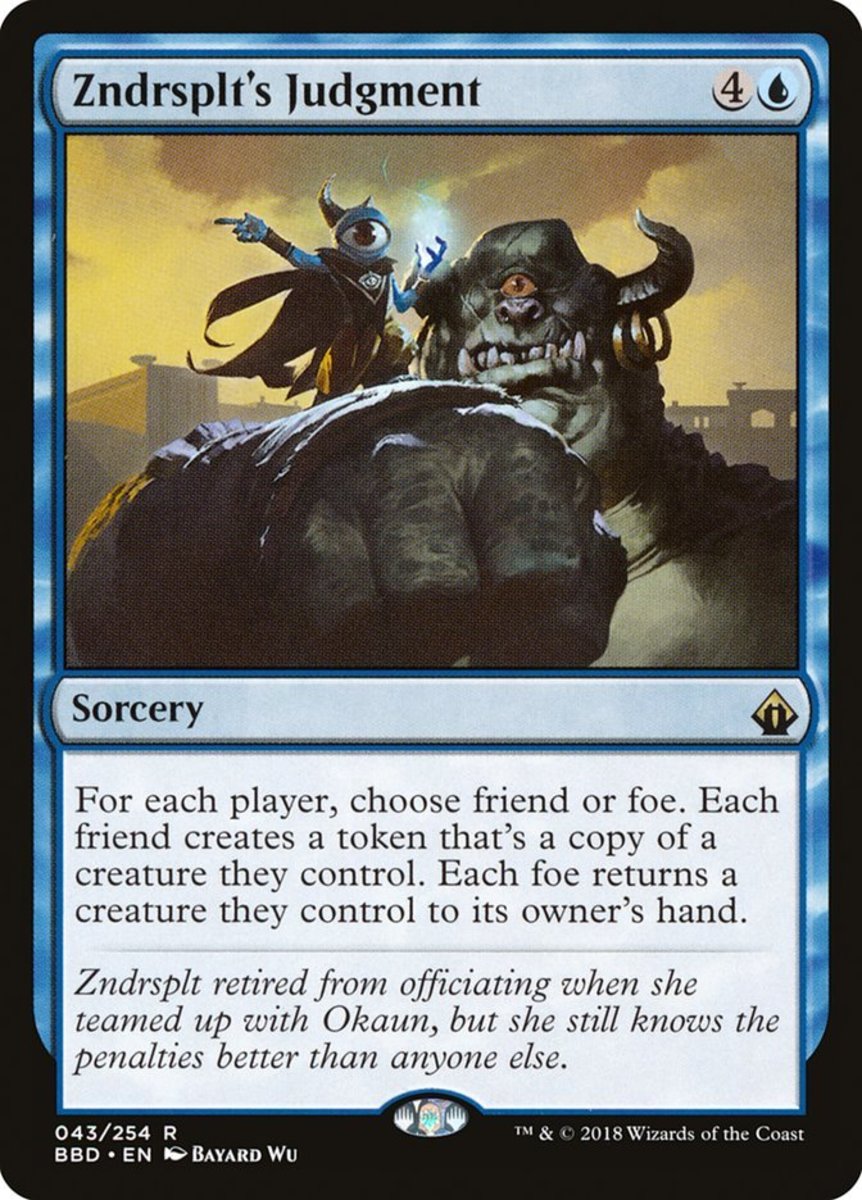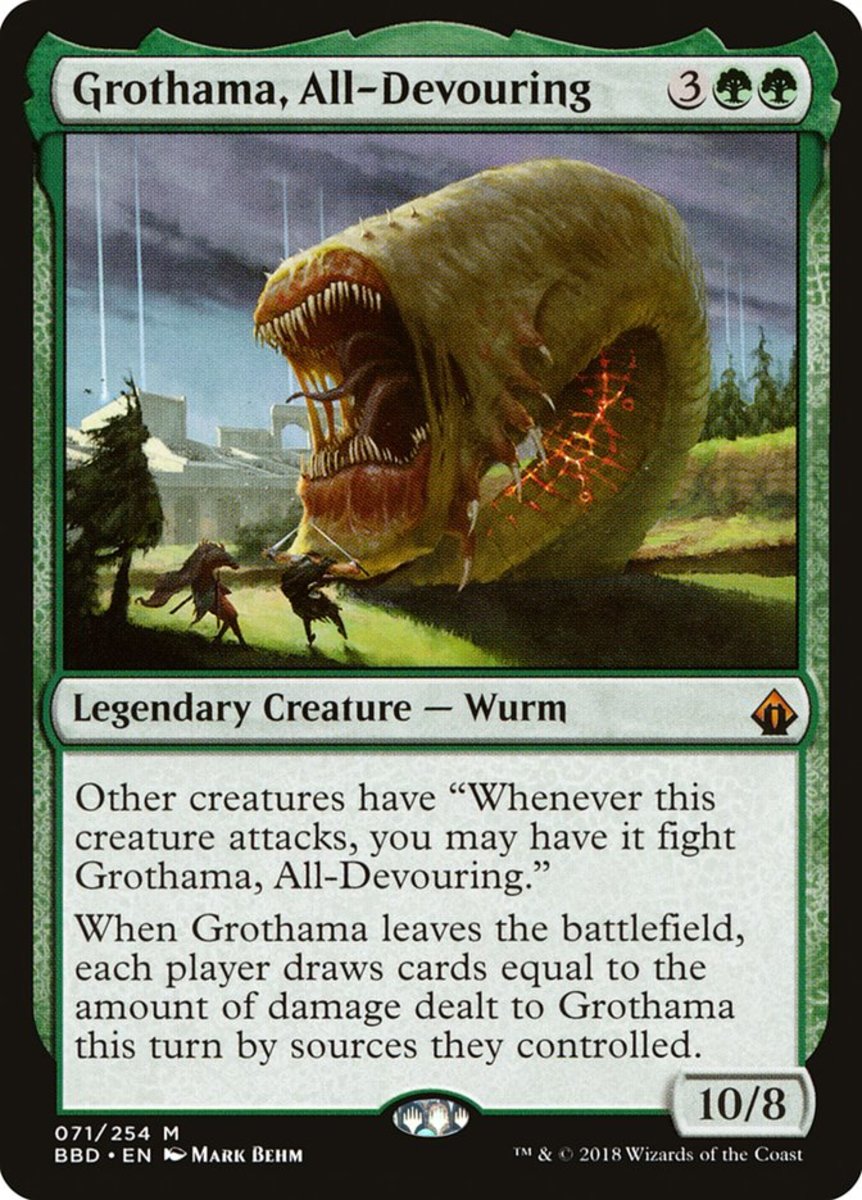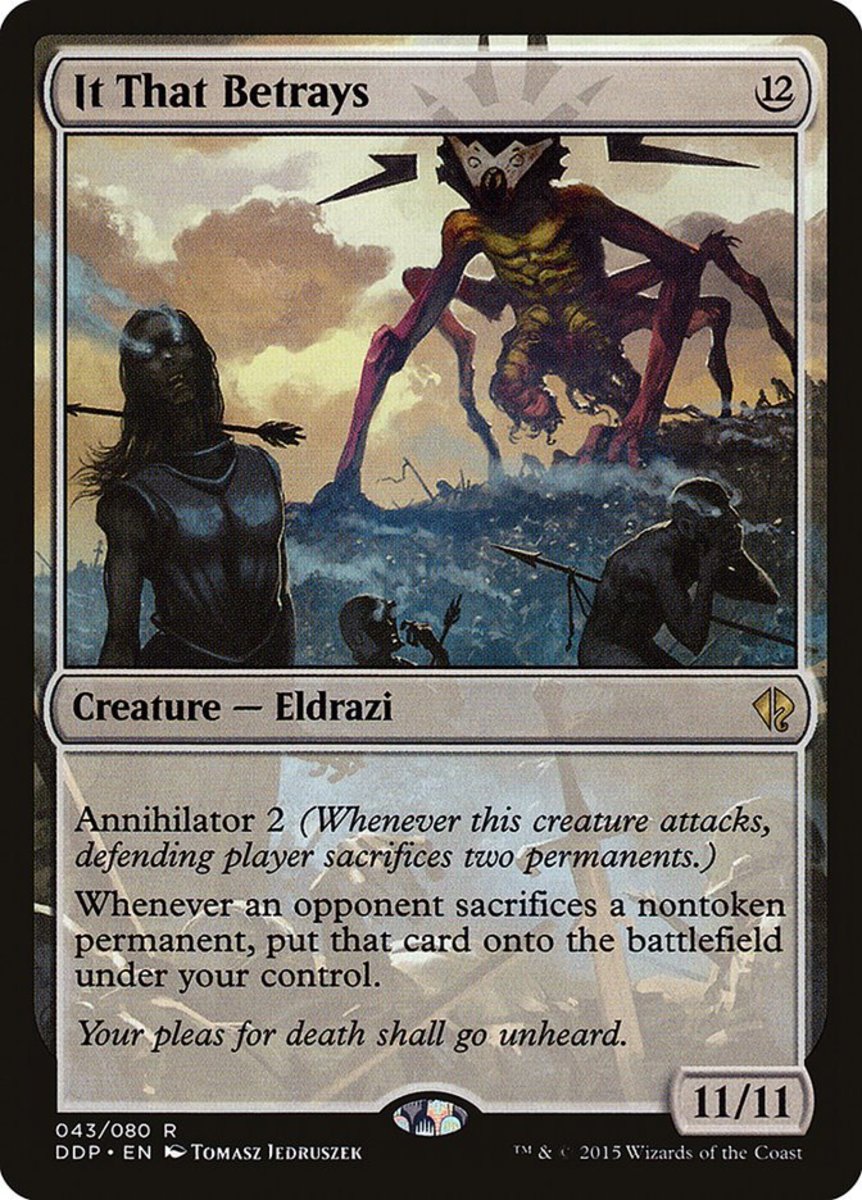- HubPages»
- Games, Toys, and Hobbies»
- Card Games»
- Collectible Card Games
Ten Tips for Cheap Magic Cards
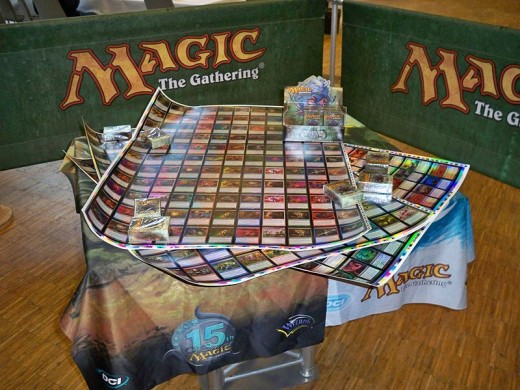
Anyone who has played Magic can attest to how expensive it is. Magic
the gathering card prices can be $20 or more for a single card. ($500
for magic's most expensive card: black lotus). Given that a single pack
of 15 cards sells from $3-4 dollars, there are a great number of players
(myself included), that have to go bargain hunting for cheap magic
cards.. Fortunately there are plenty of resources out there, and the
principles behind getting magic on the cheap are easy to understand.
This hub is long so I shall include an outline.
Three Principles of Cheap Magic Cards
1) You do not need cards other than your deck. While part of the joy of the game is opening
packs and making decks from your collection, this part of the game can
be skipped if you're on a budget. Buying just the cards you need to play
is a way to cut costs. The three routes to getting a deck without a
collection are to borrow a deck, buy a preconstructed deck, or build
using a deck list
2) Weaker cards cost less money. When I say "weaker" here I'm specifically referring to
the cards raw ability to win games. Only the most competitive of cards
make it into big tournaments. The price of a magic card is directly
correlated to how well it's doing in tournament formats. You can build
on a budget by avoiding these cards. There is one thing you can do to
stretch your budget and that is to avoid tournaments. Formats such as
multiplayer, planechase, and pauper magic are examples of non-tournament
formats where the cost burden is lighter.
3) Buy in Bulk: it only takes sixty cards to make a deck. A booster box has 540 cards. If you do the math, or talk to players, you understand there's a huge rock of cardboard doing nothing. Dredging through commons boxes, buying cards in bulk from stores, and understanding that every so often players give their cards away can get you quite a collection. Commons aren't to be dismissed. Some of game's crucial cards (removal) are actually quite common.
Playing Magic the Gathering only requires a deck.
Part of the joy in magic is in opening new booster packs and seeing what you get. Another part of the joy is figuring out how to make your collection into a deck. I would even go so far as to say that whenever you are deck building you are playing the game: deck construction. However, amassing a pile of magic cards that fill all your closet shoe boxes takes money. When you play against other players however, that collection doesn't matter. The first three of my ten tips tips for getting budget magic decks by not building a collection
1. Borrow one from someone else.
If you have a healthy mtg gaming group going, it undoubtedly has some near fanatics that have a dozen decks (I have nine). Provided you take care of it, you shouldn't have any trouble borrowing a deck for the evening. There aren't any cheap magic cards cheaper than the ones you get for free. While this turns a budget of cheap magic cards into a free ride, borrowing a deck all the time will make you seem like a freeloader. More experienced players with big collections are willing to help newbie players since you do need two to duel, but their patience can be drawn thin.
2. MTG Preconstructed Decks or precons
Every magic set that comes along has some decks preconstructed for you. These decks won't overrun your opposition. At the same time, they're not helpless either. If you're just starting out, you can drop $25 for three mtg precons. You'll be able to have a variety of decks long enough that you might be able to save until you can afford more cards. Plus, when you buy cards, you can change and customize the decks based on the concept already sketched out. Don't be afraid to ask other players to supplement your cards. If they see you coming to the group with the same precon decks some players are willing to help out by giving you a few free magic cards. Truth is that experienced players have shoe boxes and heavy binders of cards which they cannot use. Don't be an ungracious freeloader. Just be aware that some players are sometimes persuaded to give you free magic cards
A special note: Wizards has been developing duel decks for a while now. Duel deck products feature two precon decks designed to duel against each other. This means that, provided you know the rules, two players can go after each other without having to open a single pack. One of the great joys in magic is seeing how your deck deals with someone else's completely different deck. However, sometimes one deck simply trounces the other. In technical tournament speak these are called "bad match ups". They happen with enough frequency that it could be in your best interest to buy preconstructed decks made to duel one another. There's at least half a dozen duel decks out by now.
3. Mtg Tournament Deck Lists
Magic has pro tournaments. Professional people get paid handsomely for their winnings. The reason for this is that whenever a pro wins a tour, their deck lists get put on the internet for the magic community to see. These tournament winning decks are the most competitive in their format. Players in small tournaments across the world emulate the ideas of winning players. In this instance you can build a tournament winning deck without needing a collection. I have a deck completely ripped off a tournament deck and it works great. The real problem here is that the everyone's going to want the exact same cards you are. This drives up prices, but to some extent that can be controlled. Don't buy nonbasic land for instance. Likewise find acceptable substitutes for the most costly cards or go after decks that come from obsolete formats. (More on that later.)
A weaker magic card is a cheap magic card
Note: Weaker in this sense means its ability to win, especially in tournament games. Weaker does not denote a card to be less fun to play, nor does it convey the idea that a lesser card can't win games. Certain cards are just more effective/powerful than others.
Magic Grand Prix
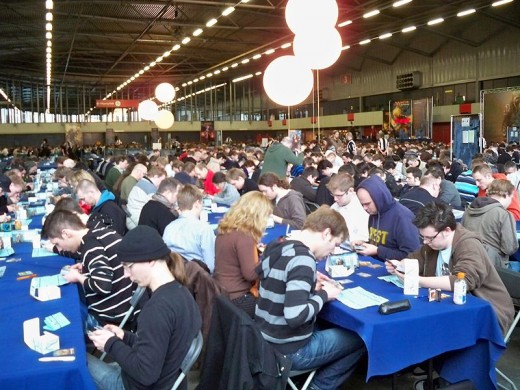
4. Stay away from mtg tournaments.
Tournaments have entry fees but they also require one to buy the most expensive cards in the tournament format. Magic the Gathering has many formats and the truth is that for any given format there are only a few deck types that win, period. The cards for these deck types are going to be the most costly cards in the format. The amount of a card is worth is highly dependent on how much tournament players are willing to pay for it. Your local gaming store is probably going to be running standard tournaments. They are sort of the bread and butter of magic. If you have a group independent of a store, however, tournament level decks just aren't worth the cost in my opinion.
5. Play Multiplayer Magic:
This was my workhorse for cheap gaming when I had a big gaming group in college. The pros of multiplayer are numerous. First, given that players are given more time and less pressure, fun/funky decks have plenty of room to work their magic. Second, a multiplayer deck doesn't have to win in order to be fun to play. (I have two great multiplayer decks that have never won a game.) Third, your deck doesn't have to be that strong to win. Provided you don't have some ass that takes control of every game, players will enter some kind of balance and all you have to do is kill your last opponent (who may already be weakened.) I have a flair for this sort of thing. I won a great deal of games on "weak" cards and I got to try out some whole new concepts that would never make it into tournaments. Meanwhile I stayed on budget with these cheap magic cards.
6. Play Magic the Gathering's Planechase variant:
Recently Wizards has put in some energy into just-for-fun variations. One of these products was the Planechase cards. In Planechase you are on an actual plane marked by the one face up planechase card. This plane changes the game, globally. Each plane card has an ability that can be activate with mana and a successive roll of the Planechase die. The randomness of the particular plane one can be in, and the ability that comes along with the plane just adds one more buffer between more expensive power cards and cheaper weak cards. Having once played an 8 player planechase game, I know that there is no safe strategy that cannot be undone by the plane in play.
7. Play Pauper Magic
To be honest, a have a shoe box+ worth of common cards I wouldn't add to any normal deck. However, it'd be great fun if only you could create a pauper magic format. This format is either all commons or commons with limited uncommons. As a player that has a shoe box + 1/2 of commons I'll don't expect to use, I think it'd be quite interesting to get a group together for some pauper games. Provided an experienced player had enough basic land, they could probably make 8 to 9 pauper decks easily. I think it'd be a great way to liven up long dead collections. The problem with this method? Getting people to take your idea seriously/making sure this doesn't bankrupt your local gaming store.
Buy Mtg products in Bulk
One of the great keys to getting a winning deck together on the cheap is finding good commons. Some of the best cards (removal and counter magic) are often commons. Moreover while it's easy to get magic commons dirt cheap, there are ways to get the more powerful ones as well.
8. The magic commons box of your local gaming store.
The Commons box is a common feature of many local gaming stores. Typically commons run ten cents a card. The level of organization varies from store to store, but commons boxes are generally sorted by color. Sometimes they are organized a bit better, by block for example. Regardless, you will get the opportunity to browse commons. This is great if you don't have a collection of your own. Not only can you accumulate a targeted card base, the truth is that some of the many important cards in the game are commons. These "meat and potatoes" cards (i.e. removal). are such a huge part of the game that Wizards prints them as commons. Depending on the dynamics of any game, it's often worth putting in a card that removes opponent's cards rather than offering up a card of your own.
9. Buy mtg commons in bulk
Buy commons in bulk. Anyone dedicated to selling singles online is going to have a ton of cards wasting away. They will often sell cards at 1 cent per card or lower. 1000 commons can easily be obtained via MagicArsenal.com. Ebay is another great place to troll. The local card store might also be willing to deal if you make a good offer.
Common for a Dime
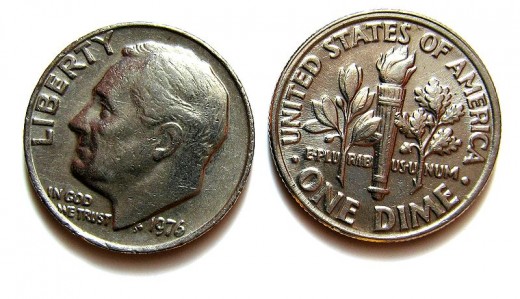
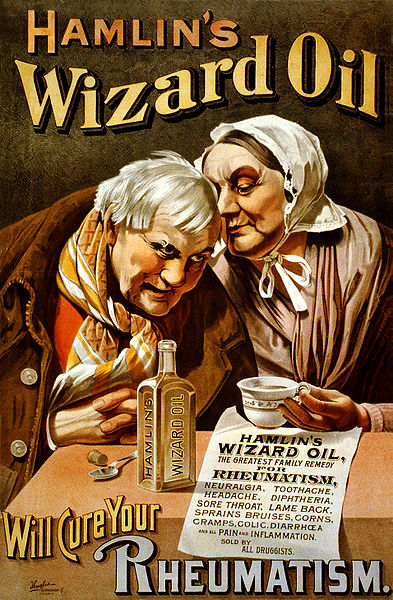
10. Find people giving away.their collection
This is a great source of cards, depending on the person. Some players just hate storing cases of magic cards. As a budget player they may well be worth it for you to take things off their hands. Other people go out for good, and are willing to give away just about everything excepting a deck or two. As a player you might be astonished at how quickly a player might give things away but it's often the case that a player is out for good. My commons box has plenty of commons 10 years old. To tell the truth, after writing this hub, I think I might want to ship that commons box to the next player looking for play on a shoestring budget.
Final Notes: I have been discussing methods of acquiring cheap magic cards but for those of you interested enough to have read my hub this far, don't use these methods to screw your local gaming store. It may be the center of magic in your area. Raid your local store's resources first, but remember this, if you're too much of a cheapskate, you might upset the owner. After all, it takes about 1 hour and $5 dollars to find worthwhile commons, and 1 minute and $7 to sell two packs.

